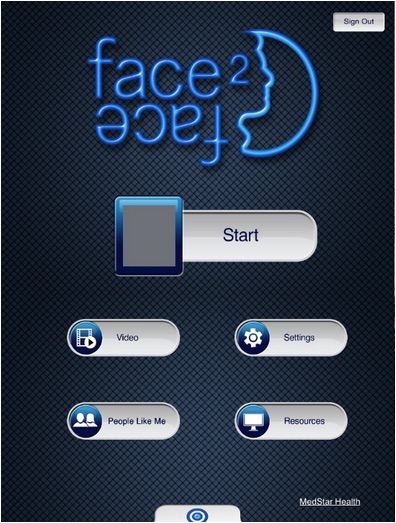 Cleveland Clinic Innovations, a business unit at the Cleveland Clinic, has partnered with the Global Healthcare Innovations Alliance to launch a new e-commerce platform called ADEO. Through the website, both caregivers and patients will be able to purchase care tools, including a number of patient-facing mobile apps. The store quietly launched last October and now plays host to 13 products.
Cleveland Clinic Innovations, a business unit at the Cleveland Clinic, has partnered with the Global Healthcare Innovations Alliance to launch a new e-commerce platform called ADEO. Through the website, both caregivers and patients will be able to purchase care tools, including a number of patient-facing mobile apps. The store quietly launched last October and now plays host to 13 products.
"If you take a look at the trends and movement toward value-based care, innovation and collaboration are not optional. They really are a necessity," Sonja O’Malley, Senior Director of Health IT Commercialization at Cleveland Clinic Innovations, told MobiHealthNews. "This is an exciting way for our Innovation Alliance partners and Cleveland Clinic really to work together and share these best practices and share these solutions, whether they're mobile apps, toolkits, decision support, et cetera, and bring those to market."
A lot of the tools being offered via the platform are tools that doctors and nurses at the Cleveland Clinic and other groups in the the Global Healthcare Innovations Alliance have been using. The alliance also includes the Marshfield Clinic, MedStar Health, North Shore — LIJ, ProMedica, The Innovation Institute, and the University of Notre Dame.
The marketplace allows them to streamline the process of making those offerings available to doctors and nurses at other hospitals and private practices, but also to patients. O'Malley says about 80 percent of the current offerings are apps of some kind.
"If you take a look at the solutions that are offered, they are really a cross-section of patient-facing apps, like a noise-monitoring app, or continuous improvement type apps like TrACWork, a mobile solution that allows caregivers to track the time they spend doing various activities, aligning them with patient outcomes," O'Malley said.
O'Malley highlighted another patient-facing app, an app called Face2Face, aimed at patients with facial paralysis, a symptom that can be caused by stroke, acoustic neuroma, or Bell's Palsy. The app allows patients to use the phone's camera as a mirror that will mirror just the healthy side of their face, allowing them to perform rehabilitation exercises without anxiety. It also contains educational materials and contact materials for therapists and support groups.
Cleveland Clinic wants the patient-facing apps to be available to patients who discover them through their own research as well as those whose doctors recommend the app to them.
"Transparency and consumer are the huge trends that we’re seeing right now," she said. "People want to take charge of their own healthcare, so we’ll have solutions that allow them to really engage in the process and take charge of their health."
As mobile apps continue to grow in popularity, a question arises of how patients can be confident they're downloading a safe, effective app. A recent solution to this problem has been for hospitals to develop their own app stores and "Genius Bars" even within the walls of their hospitals.
Ochsner Health System in New Orleans made headlines last summer when it launched the O Bar, the first “Genius Bar-type” in-person center for learning about health and wellness apps. And toward the end of last year, Morristown Medical Center, a part of the Atlantic Health System in New Jersey, opened up HealtheConnect, an on-site, physical store located just off the hospital’s main lobby where patients, family members, and medical professionals can learn about health apps and wearable devices. While the store is currently backed by the hospital's foundation, the longterm plan is to transition it into a business and revenue stream in its own right — in about a year’s time.













